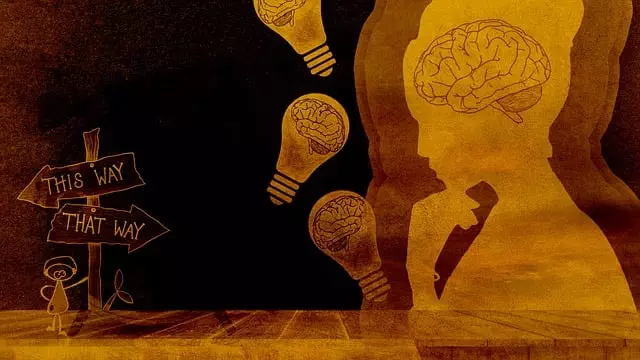The Kaiser Permanente Mental Health Access Center Lafayette focuses on building resilience through RFM (Resilience, Flexibility, Mindfulness) exercises, providing practical tools for managing adversity. Their Mental Wellness Podcast Series offers accessible resources, and they emphasize healthy communication strategies within RFM. The center's Risk Assessment for mental health professionals ensures safe environments, fostering a culture of resilience. By integrating RFM into programs like Stress Management Workshops, the center enhances well-being, improves patient care, and equips individuals with effective coping mechanisms for life's challenges.
“At the Kaiser Permanente Mental Health Access Center Lafayette, resilience is more than just a buzzword—it’s a cornerstone of overall well-being. This article delves into the powerful concept of RFM (Resilience, Flexibility, and Mastery), offering an in-depth look at its potential to enhance mental health services. We explore how RFM exercises empower individuals to build coping mechanisms, adapt to challenges, and cultivate a sense of control. Through real-world examples, we demonstrate the center’s successful implementation of RFM strategies, highlighting their profound impact on patient outcomes.”
- Understanding RFM and Resilience: An Overview for Kaiser Permanente Mental Health Access Center Lafayette
- The Role of RFM in Enhancing Mental Well-being
- Resilient Individuals: Building Coping Mechanisms Through Exercises
- Implementing RFM Strategies at the Kaiser Permanente Lafayette Center
- Real-Life Success Stories: Measuring the Impact of RFM Programs
Understanding RFM and Resilience: An Overview for Kaiser Permanente Mental Health Access Center Lafayette

At Kaiser Permanente Mental Health Access Center Lafayette, we recognize that building resilience is a cornerstone of mental wellness. Resilience, simply put, is the ability to adapt and bounce back from adversity, stress, or trauma. RFM (Resilience, Flexibility, and Mindfulness) exercises are designed to empower individuals with practical tools and strategies to navigate life’s challenges more effectively.
Through our Mental Wellness Podcast Series Production, we offer accessible resources and insights tailored for the community. Moreover, our focus on Communication Strategies within the context of RFM helps individuals develop healthier ways to express emotions and build stronger connections. Additionally, we provide comprehensive Risk Assessment for Mental Health Professionals to ensure safe and supportive environments for all clients, fostering a culture of resilience from within the very heart of our center.
The Role of RFM in Enhancing Mental Well-being

At the Kaiser Permanente Mental Health Access Center in Lafayette, we recognize that mental well-being is a cornerstone of overall health and vitality. Our approach to fostering resilience involves integrating proven practices like RFM (Rest, Focus, Movement), which has gained traction within the healthcare community for its ability to enhance stress management. By incorporating these principles into our offerings, such as Stress Management Workshops Organization programs, we empower healthcare providers to navigate demanding work environments with greater equanimity.
The Mind Over Matter Principles underlying RFM are designed to combat burnout prevention strategies for healthcare providers by offering practical tools for managing stress. Through dedicated Rest practices, Focus exercises, and Movement routines, participants learn to prioritize self-care and cultivate mental resilience. This holistic approach not only improves individual well-being but also translates into enhanced patient care within the Kaiser Permanente Lafayette community.
Resilient Individuals: Building Coping Mechanisms Through Exercises

Resilient individuals are equipped with robust coping mechanisms that enable them to navigate life’s challenges with ease. Through various exercises, one can fortify their mental fortitude and enhance emotional agility. The Kaiser Permanente Mental Health Access Center in Lafayette offers a range of programs designed to nurture resilience by empowering individuals with effective coping strategies. These interventions often include conflict resolution techniques, empathy-building strategies, and social skills training, fostering an environment where participants learn to manage stress, regulate emotions, and build supportive relationships.
By engaging in these exercises, individuals gain insights into their triggers and develop healthy responses, ensuring they can bounce back from setbacks with increased confidence. The center’s holistic approach encourages a sense of self-awareness and equips individuals with tools to foster positive interactions, ultimately leading to improved mental well-being and enhanced resilience.
Implementing RFM Strategies at the Kaiser Permanente Lafayette Center

At Kaiser Permanente’s Lafayette Center, a commitment to enhancing mental health services has led to the integration of RFM (Risk, Frequency, and Motivation) strategies as a cornerstone of their resilience-building exercises. This approach prioritizes identifying individuals at higher risk, understanding the frequency of their mental health challenges, and recognizing their inherent motivation for change. By employing these tactics, the center aims to provide tailored support that resonates with each client’s unique circumstances.
The implementation involves utilizing Empathy Building Strategies to foster deeper connections between mental health professionals and patients. This enhanced relationship enables more accurate risk assessments, ensuring that concerns are addressed promptly. Additionally, Mental Wellness Journaling Exercises have been introduced as a means of guiding individuals through self-reflection, helping them identify triggers, and developing coping mechanisms. Such initiatives at the Kaiser Permanente Lafayette Center demonstrate a proactive stance towards mental health care, promising improved outcomes for those seeking support.
Real-Life Success Stories: Measuring the Impact of RFM Programs

Real-life success stories offer compelling evidence of the impact and effectiveness of RFM (Resilience, Flexibility, and Mental Health) programs. Take, for instance, the Kaiser Permanente mental health access center in Lafayette, which has seen remarkable transformations since implementing these exercises. The center’s clients have reported improved ability to manage stress and emotions, leading to better overall well-being and reduced reliance on medication. This success is not isolated; similar stories emerge from various settings, highlighting the broad applicability of RFM techniques.
The integration of RFM into traditional mental health services has proven to be a game-changer in risk management planning for professionals. By focusing on building resilience and empathy, these programs empower individuals to navigate life’s challenges more effectively. Mood management skills, honed through structured exercises, enable clients to maintain emotional balance and foster healthier relationships. This holistic approach not only enhances individual recovery but also contributes to creating a supportive community that promotes mental health awareness and reduces the stigma associated with seeking help.
The Kaiser Permanente Mental Health Access Center Lafayette has successfully integrated RFM (Resilience, Flexibility, and Mastery) strategies into their programs, fostering a culture of resilience among individuals seeking mental well-being support. Through targeted exercises, participants have developed effective coping mechanisms, enabling them to navigate life’s challenges with enhanced adaptability. The center’s commitment to implementing these RFM approaches has led to remarkable success stories, demonstrating the power of building resilience in improving overall mental health outcomes for the community they serve.






